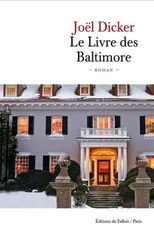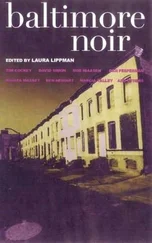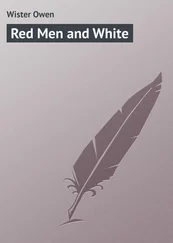Owen Wister - Lady Baltimore
Здесь есть возможность читать онлайн «Owen Wister - Lady Baltimore» весь текст электронной книги совершенно бесплатно (целиком полную версию без сокращений). В некоторых случаях можно слушать аудио, скачать через торрент в формате fb2 и присутствует краткое содержание. Жанр: Вестерн, на английском языке. Описание произведения, (предисловие) а так же отзывы посетителей доступны на портале библиотеки ЛибКат.
- Название:Lady Baltimore
- Автор:
- Жанр:
- Год:неизвестен
- ISBN:нет данных
- Рейтинг книги:5 / 5. Голосов: 1
-
Избранное:Добавить в избранное
- Отзывы:
-
Ваша оценка:
- 100
- 1
- 2
- 3
- 4
- 5
Lady Baltimore: краткое содержание, описание и аннотация
Предлагаем к чтению аннотацию, описание, краткое содержание или предисловие (зависит от того, что написал сам автор книги «Lady Baltimore»). Если вы не нашли необходимую информацию о книге — напишите в комментариях, мы постараемся отыскать её.
Lady Baltimore — читать онлайн бесплатно полную книгу (весь текст) целиком
Ниже представлен текст книги, разбитый по страницам. Система сохранения места последней прочитанной страницы, позволяет с удобством читать онлайн бесплатно книгу «Lady Baltimore», без необходимости каждый раз заново искать на чём Вы остановились. Поставьте закладку, и сможете в любой момент перейти на страницу, на которой закончили чтение.
Интервал:
Закладка:
This brought me to gayety. "That's unanswerable, anyhow!"
He still stared at the graves. "Those people in there didn't think all these uncomfortable things."
"Ah! no! They belonged in the first volume of the history of our national soul, before the bloom was off us."
"That's an odd notion! And pray what volume are we in now?"
"Only the second."
"Since when?"
"Since that momentous picnic, the Spanish War!"
"I don't see how that took the bloom off us."
"It didn't. It merely waked Europe up to the facts."
"Our battleships, you mean?"
"Our steel rails, our gold coffers, our roaring affluence."
"And our very accurate shooting!" he insisted; for he was a Southerner, and man's gallantry appealed to him more than man's industry.
I laughed. "Yes, indeed! We may say that the Spanish War closed our first volume with a bang. And now in the second we bid good-by to the virgin wilderness, for it's explored; to the Indian, for he's conquered; to the pioneer, for he's dead; we've finished our wild, romantic adolescence and we find ourselves a recognized world power of eighty million people, and of general commercial endlessness, and playtime over."
I think, John Mayrant now asserted, "that it is going too far to say the bloom is off us."
"Oh, you'll find snow in the woods away into April and May. The freedom-loving American, the embattled farmer, is not yet extinct in the far recesses. But the great cities grow like a creeping paralysis over freedom, and the man from the country is walking into them all the time because the poor, restless fellow believes wealth awaits him on their pavements. And when he doesn't go to them, they come to him. The Wall Street bucket-shop goes fishing in the woods with wires a thousand miles long; and so we exchange the solid trailblazing enterprise of Volume One for Volume Two's electric unrest. In Volume One our wagon was hitched to the star of liberty. Capital and labor have cut the traces. The labor union forbids the workingman to labor as his own virile energy and skill prompt him. If he disobeys, he is expelled and called a 'scab.' Don't let us call ourselves the land of the free while such things go on. We're all thinking a deal too much about our pockets nowadays. Eternal vigilance cannot watch liberty and the ticker at the same time.
"Well," said John Mayrant, "we're not thinking about our pockets in Kings Port, because" (and here there came into his voice and face that sudden humor which made him so delightful)—"because we haven't got any pockets to think of!"
This brought me down to cheerfulness from my flight among the cold clouds.
He continued: "Any more lamentations, Mr. Jeremiah?"
"Those who begin to call names, John Mayrant — but never mind! I could lament you sick if I chose to go on about our corporations and corruption that I see with my pessimistic eye; but the other eye sees the American man himself — the type that our eighty millions on the whole melt into and to which my heart warms each time I land again from more polished and colder shores — my optimistic eye sees that American dealing adequately with these political diseases. For stronger even than his kindness, his ability, and his dishonesty is his self-preservation. He's going to stand up for the 'open shop' and sit down on the 'trust'; and I assure you that I don't in the least resemble the Evening Post."
A look of inquiry was in John Mayrant's features.
"The New York Evening Post," I repeated with surprise. Still the inquiry of his face remained.
"Oh, fortunate youth!" I cried. "To have escaped the New York Evening Post!"
"Is it so heinous?"
"Well!.. well!.. how exactly describe it?… make you see it?… It's partially tongue-tied, a sad victim of its own excesses. Habitual over-indulgence in blaming has given it a painful stutter when attempting praise; it's the sprucely written sheet of the supercilious; it's the after-dinner pill of the American who prefers Europe; it's our Republic's common scold, the Xantippe of journalism, the paper without a country."
"The paper without a country! That's very good!"
"Oh, no! I'll tell you something much better, but it is not mine. A clever New Yorker said that what with The Sun—"
"I know that paper."
"— what with The Sun making vice so attractive in the morning and the Post making virtue so odious in the evening, it was very hard for a man to be good in New York."
"I fear I should subscribe to The Sun," said John Mayrant. He took his hand from the church-gate railing, and we had turned to stroll down Worship Street when he was unexpectedly addressed.
For some minutes, while John Mayrant and I had been talking, I had grown aware, without taking any definite note of it, that the old custodian of the churchyard, Daddy Ben, had come slowly near us from the distant corner of his demesne, where he had been (to all appearances) engaged in some trifling activity among the flowers — perhaps picking off the faded blossoms. It now came home to me that the venerable negro had really been, in a surreptitious way, watching John Mayrant, and waiting for something — either for the right moment to utter what he now uttered, or his own delayed decision to utter it at all.
"Mas' John!" he called quite softly. His tone was fairly padded with caution, and I saw that in the pause which followed, his eye shot a swift look at the bruise on Mayrant's forehead, and another look, equally swift, at me.
"Well, Daddy Ben, what is it?"
The custodian shunted close to the gate which separated him from us. "Mas' John, I speck de President he dun' know de cullud people like we knows 'um, else he nebber bin 'pint dat ar boss in de Cussum House, no, sah."
After this effort he wiped his forehead and breathed hard.
To my astonishment, the effort brought immediately a stern change over John Mayrant's face; then he answered in the kindest tones, "Thank you, Daddy Ben."
This answer interpreted for me the whole thing, which otherwise would have been obscure enough: the old man held it to be an indignity that his young "Mas' John" should, by the President's act, find himself the subordinate of a member of the black race, and he had just now, in his perspiring effort, expressed his sympathy! Why he had chosen this particular moment (after quite obvious debate with himself) I did not see until somewhat later.
He now left us standing at the gate; and it was not for some moments that John Mayrant spoke again, evidently closing, for our two selves, this delicate subject.
"I wish we had not got into that second volume of yours."
"That's not progressive."
"I hate progress."
"What's the use? Better grow old gracefully!
"'Qui no pas l'esprit de son age
De son age a tout le malheur.'"
"Well, I'm personally not growing old, just yet."
"Neither is the United States."
"Well, I don't know. It's too easy for sick or worthless people to survive nowadays. They are clotting up our square miles very fast. Philanthropists don't seem to remember that you can beget children a great deal faster than you can educate them; and at this rate I believe universal suffrage will kill us off before our time."
"Do not believe it! We are going to find out that universal suffrage is like the appendix — useful at an early stage of the race's evolution but to-day merely a threat to life."
He thought this over. "But a surgical operation is pretty serious, you know."
"It'll be done by absorption. Why, you've begun it yourselves, and so has Massachusetts. The appendix will be removed, black and white — and I shouldn't much fear surgery. We're not nearly civilized enough yet to have lost the power Of recuperation, and in spite of our express-train speed, I doubt if we shall travel from crudity to rottenness without a pause at maturity."
Читать дальшеИнтервал:
Закладка:
Похожие книги на «Lady Baltimore»
Представляем Вашему вниманию похожие книги на «Lady Baltimore» списком для выбора. Мы отобрали схожую по названию и смыслу литературу в надежде предоставить читателям больше вариантов отыскать новые, интересные, ещё непрочитанные произведения.
Обсуждение, отзывы о книге «Lady Baltimore» и просто собственные мнения читателей. Оставьте ваши комментарии, напишите, что Вы думаете о произведении, его смысле или главных героях. Укажите что конкретно понравилось, а что нет, и почему Вы так считаете.










